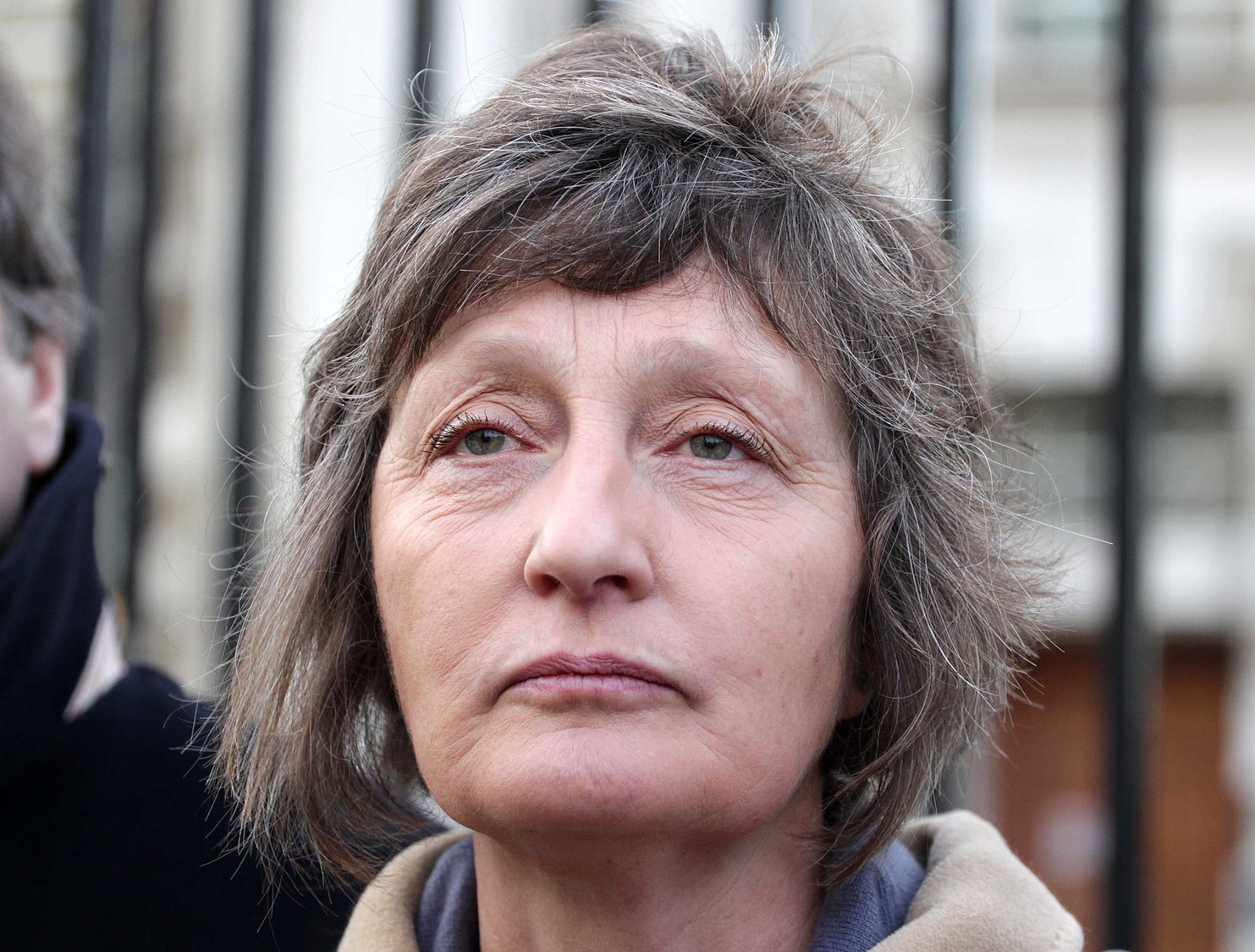BY BARRY McCAFFREY
THE British government has been ordered to hand over minutes of cabinet meetings at which the decision was made to refuse a public inquiry into the murder of Pat Finucane.
Judge Ben Stephens today (Tuesday) ordered that minutes of cabinet meetings in July 2011 and correspondence between MI5 and the Northern Ireland Office must be disclosed to the court.
The order comes as part of a legal challenge by the solicitor’s widow Geraldine Finucane against Prime Minister David Cameron’s refusal to hold a public inquiry into the 1989 murder.
Mr Finucane was shot dead by UDA killers in front of his wife and three children as they sat down to dinner on February 12, 1989.
Mr Justice Stephens said that the gravity of the findings was self-evident but foreshadowed by evidence contained in confidential correspondence.
The judge referred to one letter, dated July 8, 2011 in which Mr Cameron’s intelligence advisor Ciaran Martin wrote:
“Even by Northern Ireland standards the facts are grisly. Moreover, in terms of allegations of British state ‘collusion’ with loyalist paramilitaries, this is the big one… whilst we know of no evidence of direction or advance knowledge of the murder by ministers, security chiefs or officials, exhaustive previous examinations have laid bare some uncomfortable truths.
“Paid state agents were directly involved in the killing, including the only man ever convicted of involvement in it.
“Lord (John) Steven’s conclusions paint a picture of a system of agent running by the RUC’s Special Branch and the Army’s Force Research Unit that was out of control.”
However appearing to confirm some element of senior government involvement in efforts to cover up security force collusion in the solicitor’s murder, the Prime Minister’s security advisor Mr Martin wrote:
“Some of the evidence available only internally could be read to suggest that within government at a high level this systematic problem with loyalist agents was known, but nothing was done about it.
“It’s also potentially the case that credible suspicions of agent involvement in Mr Finucane’s murder were made known at senior levels after it and that nothing was done; the agents remained in place. These two points essentially aren’t public.”
In a follow up letter, dated July 9, 2011, written about Mr Cameron, Mr Martin said: “…he, like virtually everyone else outside MoD shares the view that this was an awful case and as bad as it gets, and was far worse than any post 9/11 allegation.”
Read Ciaran Martin’s senior position within government here
Mr Justice Stephens said that Mrs Finucane’s decision to take a legal challenge against the government decision not to allow a public inquiry into her husband’s murder was based on the allegation that the decision making process was not genuine and that the decision to refuse an inquiry was made under the influence of those opposed to any further investigation of the role of state agents in the murder.
In February the Detail exposed major concerns over the the De Silva review into Pat Finucane’s murder. read here and here and here
Ordering the disclosure of the papers to the court he said: “Accordingly, whilst emphasising that this is a preliminary stage there has been sufficient evidence to grant leave in relation to all of the applicant’s grounds of challenge.”
Mr Justice Stephens said that the government, whilst accepting that this was a case with a high level of factual enquiry, also argued that substantial materials were already before the court which explained in detail the background to the proceedings and impugned decision making process.
He said that while the government’s contention was that discovery in such circumstances was not necessary: “I consider that the fact that there are already substantial ‘materials’ including source documents before the court does not mean that ‘documents’ necessary in order to resolve the matter fairly and justly should not be disclosed.”
Mr Justice Stephens said that the government had argued that to identify individual ministers who had taken part in discussions to refuse a public inquiry was objectionable as it “undermines the doctrine of joint responsibility.”
However he said the fact that a document was confidential did not make it immune from disclosure.
“I consider that this is a highly fact sensitive case requiring the most careful and accurate evaluation of the facts.
“That it wll involve a painstaking analysis of a whole series of meetings tracing the whole decision making process from inception to conclusion identifying those who were involved in it and the roles that each played during the process.
“That enquiry is not restricted to the actual decision maker but also to those involved in the decision making process including civil servants who were advising the decision maker.
“That a document was not seen by a decision maker does not mean that it is immune from disclosure.”
The court will resume on Friday when a decision will be taken on when the government documents will be handed over to the court.
Read full judgement here
